WWII veteran recalls working on Catalina flying boats in croc-infested waters in Darwin
Mordaunt Mitchell swam in crocodile-infested waters as a RAAF mechanic during WWII. He recalls his time in Australia’s Top End as he turns 100. SEE THE VIDEO.
National
Don't miss out on the headlines from National. Followed categories will be added to My News.
A RAAF veteran who had to dive into crocodile-infested waters in Darwin to maintain Catalina flying boats during World War II is celebrating his 100th birthday on Saturday. Leading Aircraftman Mordaunt Mitchell was stationed in Darwin in 1943 after the Japanese bombing that destroyed the city.
Mr Mitchell was an aircraft mechanic assigned to maintain the Catalinas which were used to transport anti-submarine depth chargers.
They were extensively used to defend the waters north of Darwin for fear of a Japanese invasion.
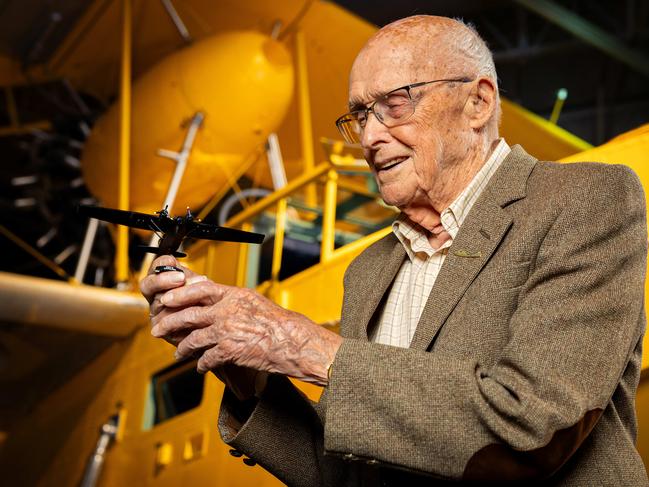
Mr Mitchell said part of his job was attaching wheels to the floating aircraft so they could be loaded onto a barge and brought back onshore for maintenance.
“We had to dive into the water to put a pin into the Catalinas to attach the wheels,” he said.
“There were crocodiles in there and we just dived right in. They never asked us if we could swim.”

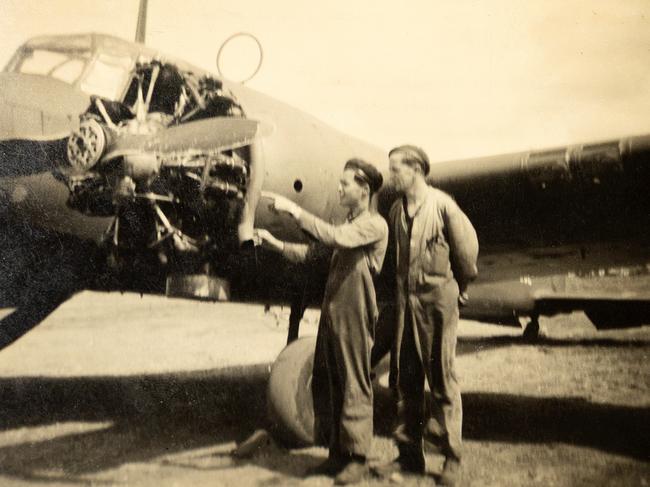
He said that preparing the aircraft was dangerous work, with depth chargers and equipment sent out on barges out to the Catalinas which were moored about 500m offshore.
Mr Mitchell said he was lucky to survive the war, with a deadly accident occurring on his day off.
A depth charger on one of the barges rolled off and exploded in the water, killing eight people.
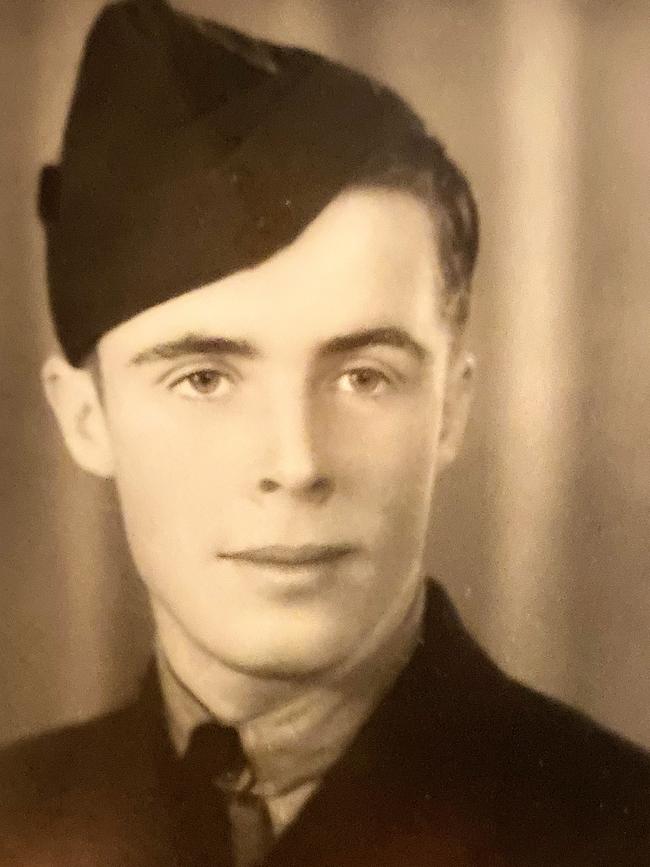

Mr Mitchell, who still lives independently in Melbourne, will celebrate with 130 of his family and friends at the Elsternwick RSL.
However, he had an early present when he was given a reception from Air Vice Marshal Glen Braz this week during a visit to the RAAF Museum at Point Cook.
Air Vice Marshal Braz, who is in charge of preparing combat force for the RAAF and will receive the next delivery of the F-35A Lighting fighter jets, presented Mr Mitchell with a replica of the Catalina flying boats he serviced and an Air Commanders coin.
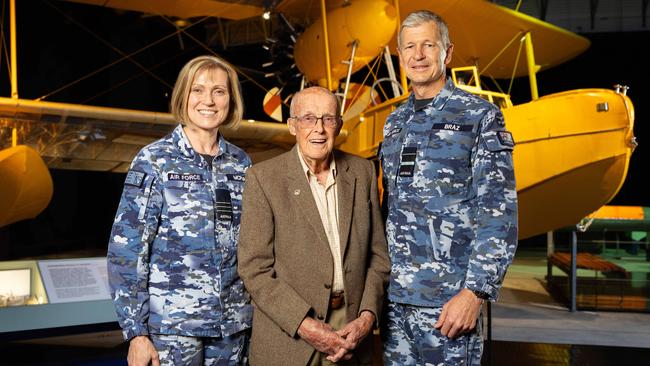
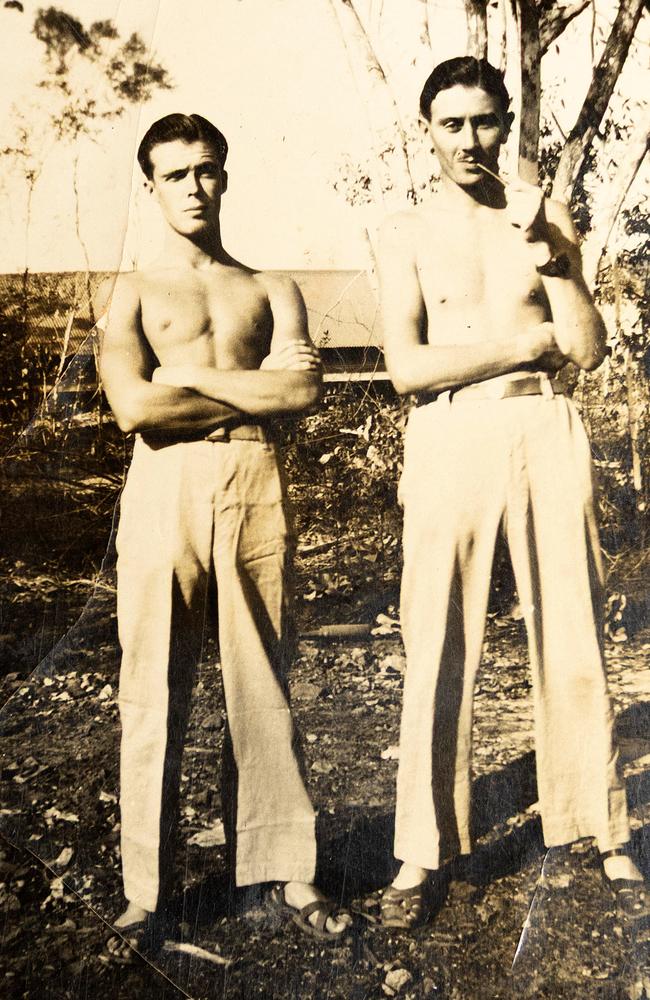
The pair discussed at length the workings of the hardworking aircraft, which were highly valued during the war as they could fly up to 12 hours over long distances.
Mr Mitchell said Darwin, which was flattened in the Japanese bombing raids, was still in ruins when he arrived a year later.
He said the Japanese bombers were precise, recalling how one of the bombs had landed directly in the middle of a two-storey concrete building.
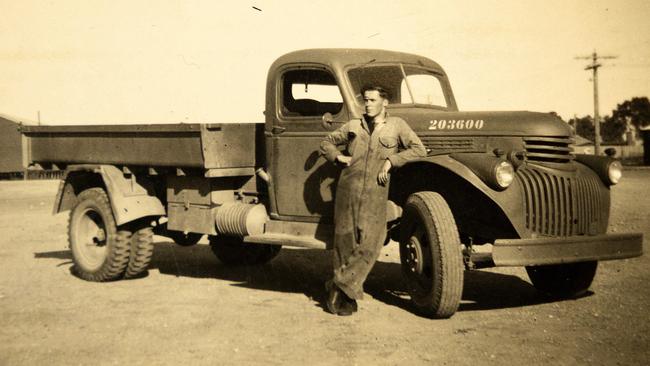
After leaving the RAAF, Mr Mitchell went on to be a successful developer, building over 10,000 buildings in Victoria – a feat that he attributes to his time in service.
He said the RAAF gave him “confidence” and “discipline”, adding that it was “a wonderful career”.
Mr Mitchell, who still lives in Melbourne, has five children, six grandchildren, and four great grandchildren.




